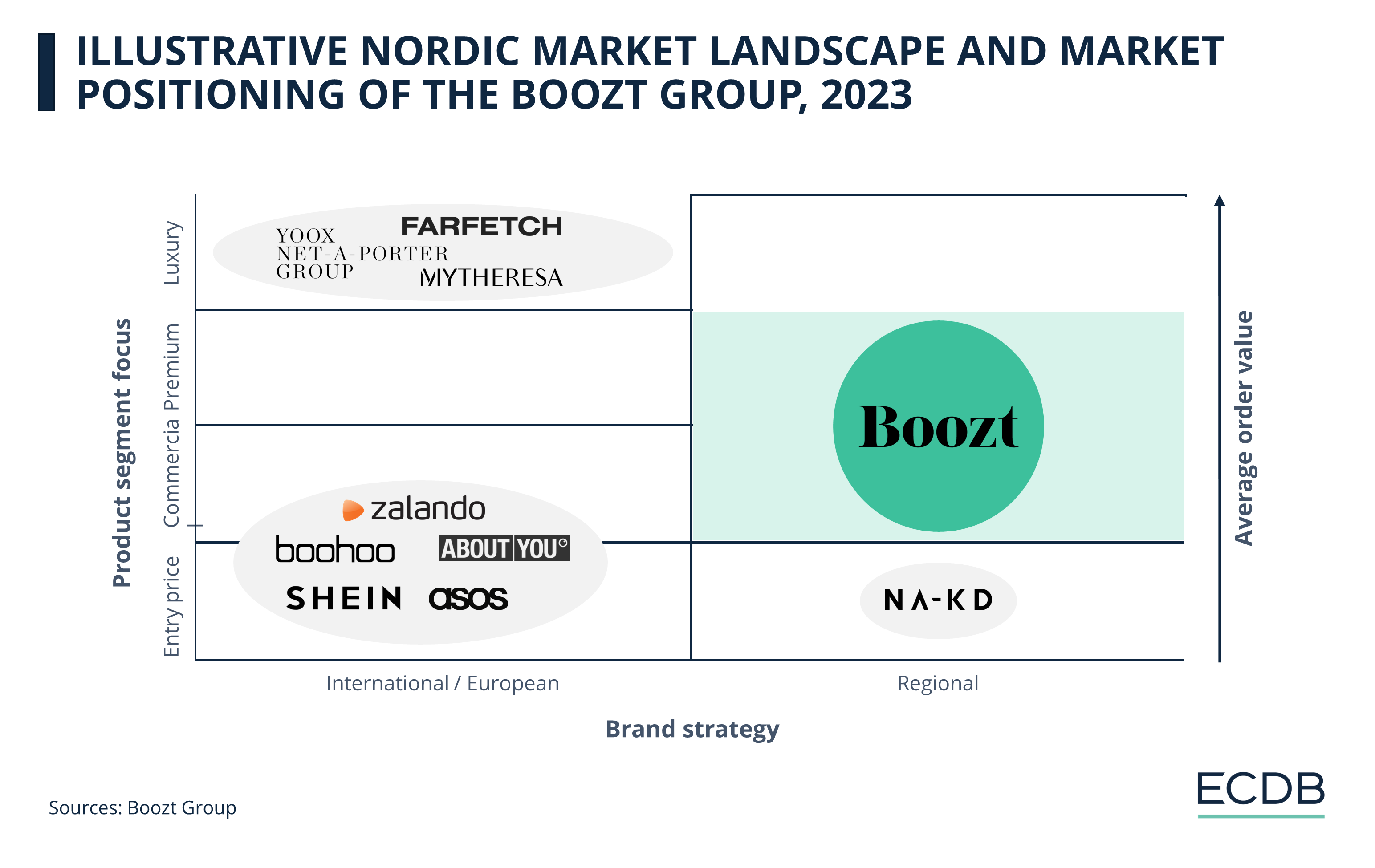Company Spotlight: Boozt
May 08, 2023
The Swedish eCommerce company Boozt Group brands itself as "the Nordic Department Store," primarily selling fashion, clothing, and various lifestyle products tailored to Nordic customers' preferences. The company runs boozt.com and booztlet.com – the former being its department store while the latter a designer outlet – on its self-developed tech infrastructure that claims to simplify the online shopping experience. Currently, Boozt's retail platforms see over 3 million active customers and feature international brands such as Ralph Lauren, Tommy Hilfiger, and HUGO BOSS - in addition to over 600 Scandinavian brands. Its positioning in the digital retail market among solid international as well as regional competitors like Amazon, Zalando, SHEIN, FARFETCH, and Porter provides interesting insights into the brand’s strategy.

Among both international and European brands, Boozt locates itself above the entry price but below the luxury level. To put things in perspective, companies such as SHEIN and boohoo are placed in the "entry price" category, indicating their premise of setting low up-front costs compared to other market competitors. "Luxury", on the other hand, includes brands like Farfetch and Porter which adopt a value-based strategy where they bank on customers to pay more for their high-end products. Boozt falls between these two extremes, hitting a sweet spot.
The company is also taking other steps to consolidate its position in the market - for instance, leveraging increased online penetration for fashion and lifestyle products to its benefit. As of 2022, Boozt's online penetration for fashion and lifestyle products stands at 27.5% as opposed to offline penetration of 72.5%.
Boozt's net revenue increased 16% in 2022 to reach SEK 6,743.4 million, claiming a 6% share in the Nordic market which is worth SEK 110 billion. In the future, as online penetration increases to 50% and higher, Boozt can strategize to take even bigger shares. With the aim of controlling the most important parts of its eCommerce ecosystem, Boozt could become a leading eCommerce player not only in the Nordic countries, but also in selected countries in Europe.
Besides all these, Boozt’s decision to not target entry-level segments might become a missed opportunity for growth in terms of both revenue and market share. Identifying customers at the lower segments and using its strong brand recognition to attract them could help the company to gain an edge over its competitors in the coming years.
Related insights
Article
Walmart, Amazon & Shein: Which Store Ranks First in U.S. Online Fashion?
Walmart, Amazon & Shein: Which Store Ranks First in U.S. Online Fashion?
Article
Video Games Market in 2024: Market Revenues, Segments, Regions & Top Companies
Video Games Market in 2024: Market Revenues, Segments, Regions & Top Companies
Article
Top Amazon Rivals: The Tech Giant’s Biggest Competition
Top Amazon Rivals: The Tech Giant’s Biggest Competition
Article
Top 10 Online Stores in the U.S: Amazon Sold More Than All Other Top 5 Stores Combined
Top 10 Online Stores in the U.S: Amazon Sold More Than All Other Top 5 Stores Combined
Article
Prada & Prada Beauty Analysis: Business Model and Global Net Sale
Prada & Prada Beauty Analysis: Business Model and Global Net Sale
Back to main topics